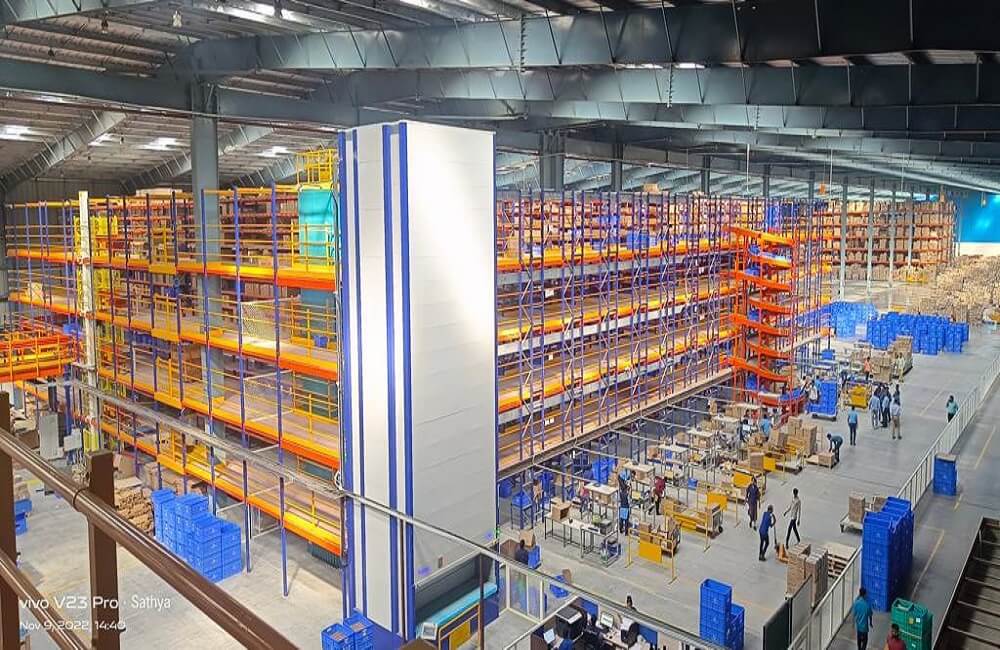With the widespread disruption in the supply chain landscape, there have numerous logistics firms that have seen through end-to-end solutions encompassing the complete set of solutions such as fulfilment, last-mile delivery, and reverse logistics. Despite the geopolitical dynamics and the subsequent disruptions across the world, there have been few companies that have enabled the smooth transition of these firms.
 We captured some exclusive insights from an industry veteran who has seen Sumit Sharma, founder, GoBOLT, a full-service end-to-end logistics partner with an electric fleet that lowers carbon emissions. He describes the numerous ways in which logistics and supply chains have evolved through time and the steps towards being ready for future shocks.
We captured some exclusive insights from an industry veteran who has seen Sumit Sharma, founder, GoBOLT, a full-service end-to-end logistics partner with an electric fleet that lowers carbon emissions. He describes the numerous ways in which logistics and supply chains have evolved through time and the steps towards being ready for future shocks.
How has the supply chain and logistics sector evolved over the years? Can you state the key changes that have moulded the industry’s perspectives?
The booming e-commerce industry has increased the importance of supply chains and logistics in the last few years. In the past, supply chain management used to be a complicated matter. People had to communicate manually. The global IT industry has changed many things in the supply chain and logistics. Information technology has introduced a digitalized platform for the supply chain management.
Nowadays, artificial intelligence has impacted the supply chain management industry to a large extent. The digital platform gives all the logistics and supply chain information on the same platform. As a result, business managers can make decisions more quickly. Moreover, the decision-making process becomes more fruitful as managers take them after checking all the information.
Machine learning will gradually replace humans’ involvement with machines to manage logistics and supply chains. As a result, the supply chain management will be fully or partially automated for small and large enterprises. Such changes in supply chain management will reduce the organization’s expenses. Nevertheless, automating the process will eliminate the chance of errors that humans often commit.
Overall, supply chain and logistics management will depend on machine intelligence rather than human intelligence. The trend will eventually reduce expenses and managerial headaches for businesses.
How have you rethought and created new strategies for handling future shocks?
Like many other sectors, supply chain management had difficulties during the COVID-19 lockdown. Most countries have imposed lockdown and border restrictions. As a result, the supply chain industry had to undergo many challenges. The industry must adopt many changes in such a scenario to streamline the supply chain and logistics. At the same time, the industry has taken many preventative measures to deal with future shocks.
Crises often bring many opportunities, and this old saying applies to the global supply chain industry. The COVID-19 lockdown has restricted humans from going outside, as humans are the virus carriers. The supply chain industry has become accustomed to automated vehicles that do not need a human pilot. Such trucks can reach destinations without any breaks or interruptions. Therefore, supplying goods will become a quicker process with the use of these trucks.
On the other hand, managing the supply chain and logistics will also become automated with the implementation of AI software. The AI-integrated tools ensure minimal or negligible involvement of humans in a process. As a result, the supply chain management process attempts to become free from any human intervention. As a result, the self-sustained or fully automated model will overcome lockdowns in the future if they are ever imposed again.
Please share your thoughts on how the sector has dealt with the supply chain distress, especially due to global supply chain constraints?
The world has recovered from the disease to a large extent, and thus industries are getting back on track gradually. Supply chain management is one of the industries that has experienced sharp growth in recent months. Supply chain management has been critical during the COVID-19 lockdowns in different parts of the world.
The rising demand of consumers has increased the importance of supply chain management. Besides timely delivery, people want quicker delivery service. A complete change in supply chain management strategy has helped businesses meet customers’ demands globally.
Artificial Intelligence has helped the supply chain management industry to a large extent. People can find all information on the virtual platform and make decisions accordingly. The revival of this industry in recent months should be attributed to the AI-integrated systems that have made supply chain and logistics management easier.
The managers can track the cargo with precision through real-time live maps. Nevertheless, the system comes with analytics and insights to help the managers make crucial decisions at the right time. As a result, the productivity of the industry increases drastically. Overall, modern technologies and custom-made supply chain management tools have helped businesses to regain an effortless supply chain after disruptions introduced by the COVID-19 pandemic.
What are the critical challenges and opportunities impacting the logistics sectors?
The logistics sector is full of problems and opportunities. As businesses overcome the problems with technological innovations, they find new challenges. Therefore, constant strategy-building is a common task of the logistics managers. The industry faces the challenges mentioned below.
- Security: Security is a significant concern for the industry, as burglary cases are rising. Nevertheless, food damage can happen due to mishandling during transit.
- Information: Obtaining accurate shipping information is the consumer’s right, though old-fashioned logistics management cannot provide up-to-date information to the customers.
- Human Mistakes: The logistics industry depends on humans, who often make errors. Damage to the goods can happen due to mistakes.
- Manual Process: Most logistics companies depend on the manual process, which means the pilots operate trucks. Humans need rest, and thus shipping time increases.
An advanced logistics management system can resolve these challenges perfectly. The system eliminates human involvement in data processing. Moreover, it can collect data from different sources to create insights, graphs, and analytics. Business managers can make more efficient decisions using these tools.
The AI-integrated logistics system will lead to minimal human involvement in the next few years. Automated trucks will reduce the shipping time. Nevertheless, computerized systems will ensure better security of the goods.



